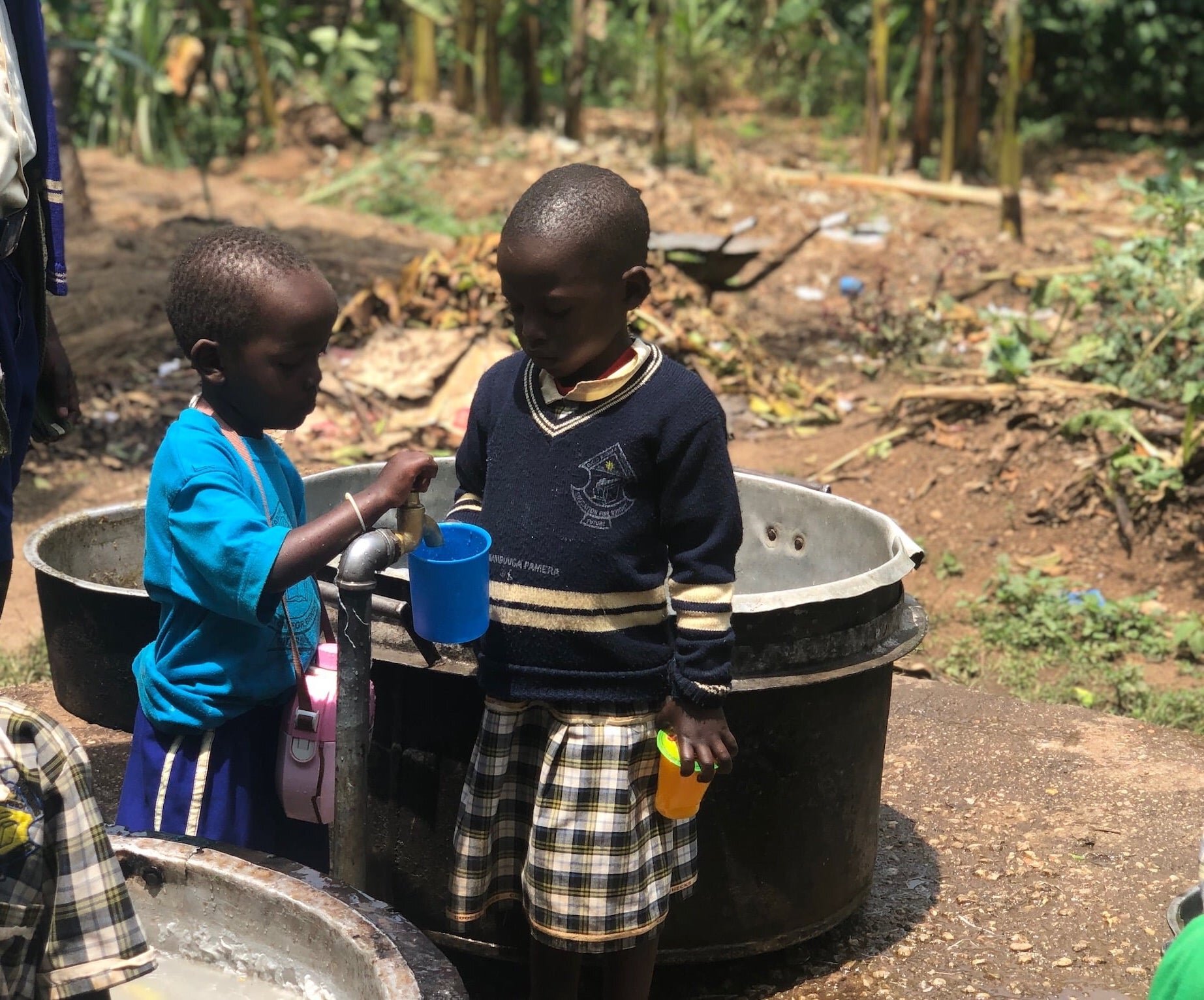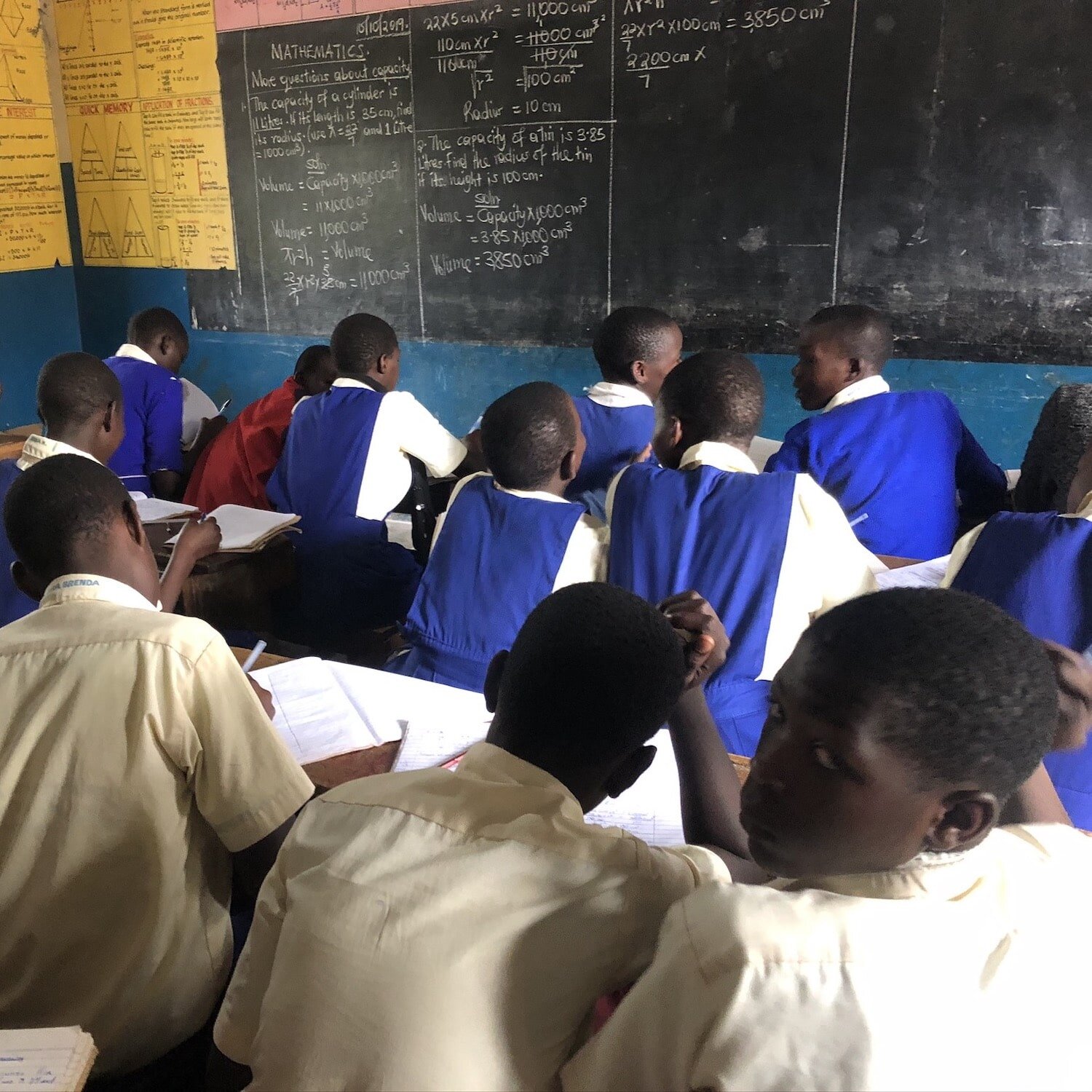Our Focus
Education
Providing high-quality education is the seed in which all else flourishes at Sabina. Our school commits to building a strong educational and social start for students that will propel them into a life of success. The lack of essential funding makes it difficult to achieve fair educational opportunities in the school. FOS works to harness the resources needed for classrooms and administrative operation of school programs. The support and donations of time, expertise, and monetary resources of philanthropic leaders make it so that the school can survive and thrive.
Read More
Further, Sabina works with students’ parents and guardians because we realize the integral role they play in childhood development and school retention. The partnership ensures a sustainable and well-rounded path for healthy youth development and educational outcomes. FOS understands that improved school facilities, strategic collaboration with vital partners, and donor funding can expand the scope of growth and positive expansion for the school. With the initial donation of a few computers, the school will work to incorporate communication and information technology into its curriculum, which will enable students to foster technological skills. As a primary day and boarding school with a nursery section, Sabina is the foundation of continued learning and education for developing children to reach their full potential.
Infrastructure
The physical infrastructure at Sabina has not been remodeled since the 1990s. After a detailed review of the campus, the areas needing immediate attention for the safety and security of our students are: installation of new solar power systems, expansion of dormitory capacity and proper hygiene facilities, construction of a security fence, expanded primary classroom space with additional textbooks and learning materials. Further, two capital projects have been identified as desperately needing immediate attention--the Kitchen and the Nursery areas. FOS has worked with local architects and engineers to design a Kitchen Complex and Learning Center as well as a Nursery Program building.
Read More
The plans for these areas have been completed. The ground has been broken and progress has been made on the Kitchen Complex and Learning Center. However, with limited financial resources, FOS is challenged with identifying approximately $70,000 USD necessary to complete this project. Additionally, the on-site analysis identified the next project and focus to be the construction of a Nursery Program building that will require funding of approximately $140,000 USD. These changes will bring the school into compliance with the guidelines of the Ministry of Education. Building these infrastructures will be the foundation that allows for a fully functioning program that inspires learning.
Sustainability
It is very important for Sabina's programs to keep a sustainability strategy in it's forefront. FOS aims to concentrate on a variety of initiatives to ensure this happens. Two core components to ensure the success of the program are; building a strong administrative structure and expanding community engagement. To deliver this long-term strategic plan, Sabina is focusing on the following goals: scaling programs; partnering with NGOs to expand resources and support; developing advocacy and stakeholder relationships; and growing development and training programs.
Read More
FOS will develop partnerships with stakeholders and NGOs in order to provide expertise and administrative guidance to reach the aforementioned goals. The strategic plan highlights the necessity for improved access to training and development programs for the school faculty and increase opportunities for students to obtain scholarship.
Through successful fundraising efforts and philanthropic support, Sabina will have the ability to provide on-site basic health service programs to students and faculty. The goal is to add a full-time nurse and nurse’s station to accommodate healthcare demands; both are currently nonexistent!
Community
FOS and Sabina value the critical contributions the community offers to the success of the program. The leadership within Sabina embraces opportunities to grow regional partnerships including, but not limited to: uniting local culture and economy, grassroots initiatives, and adult education. School leadership emphasizes the importance of engagement with these sectors to advance learning for all.
Read More
Currently, Sabina offers and operates an on-site community resource center, small permaculture program for students, and a maize mill business.
The Ssanje Community Resource Center was an idea initiated in 2009 by an American Peace Corps volunteer, Sarah Cowan Farster, with the support of the Christ Episcopal Church in Columbia, MD, USA. The continued partnership with this church has allowed for the resource center to be utilized as a working library, computer center, and additional learning area for students and teaching faculty.
Community initiatives are vital to the success of students and families. The permaculture student program and Maize Mill programs are farm-to-table agriculture initiatives that cultivate lifelong learning and skills for children, staff, and community members. Agriculture is the cornerstone of life and culture in this region.









